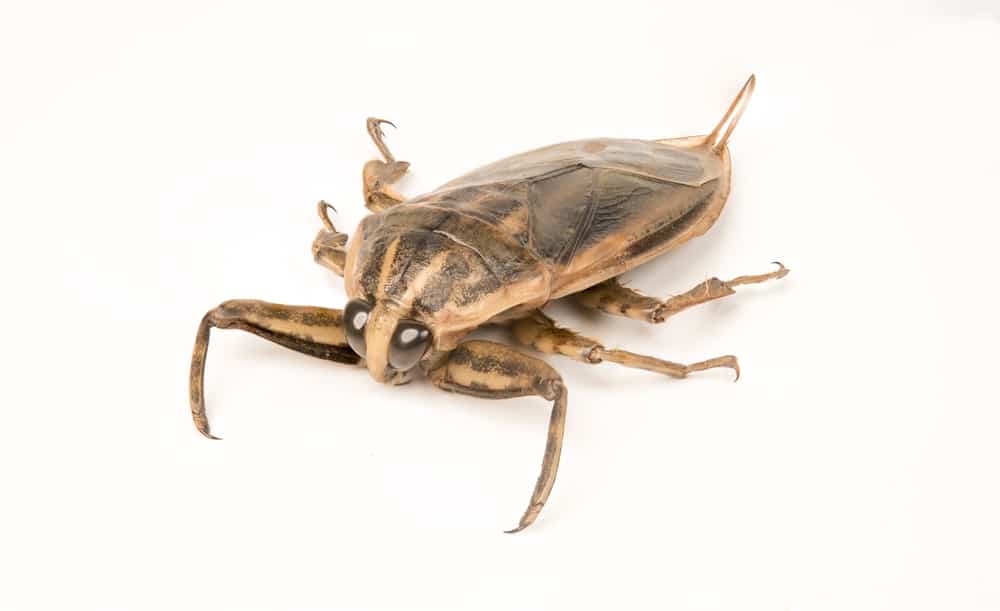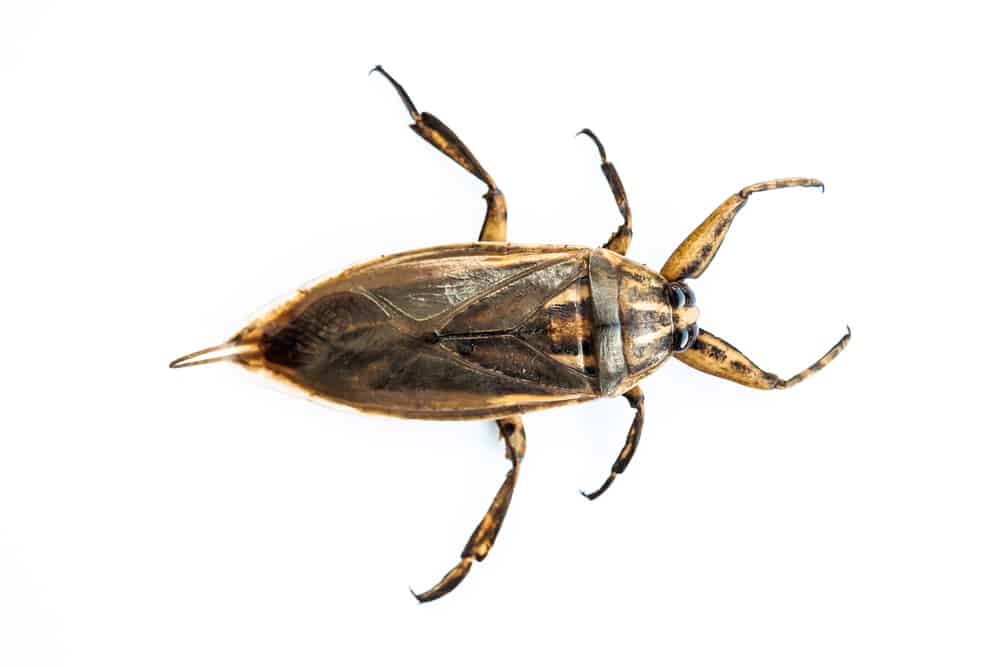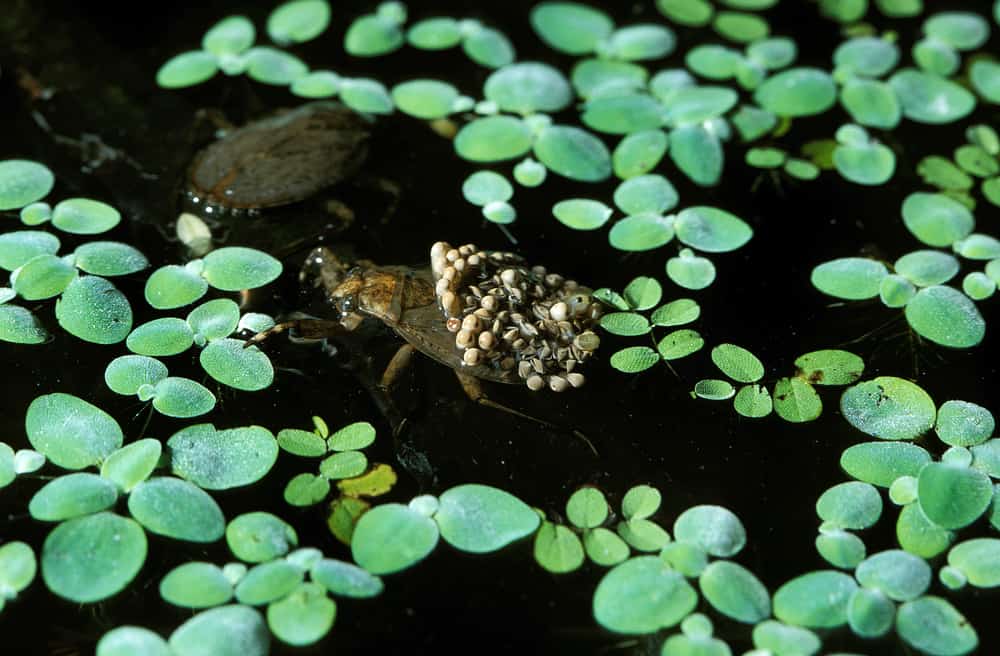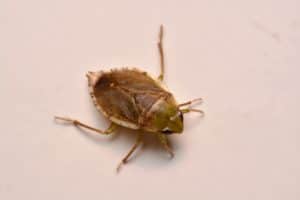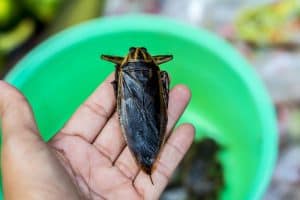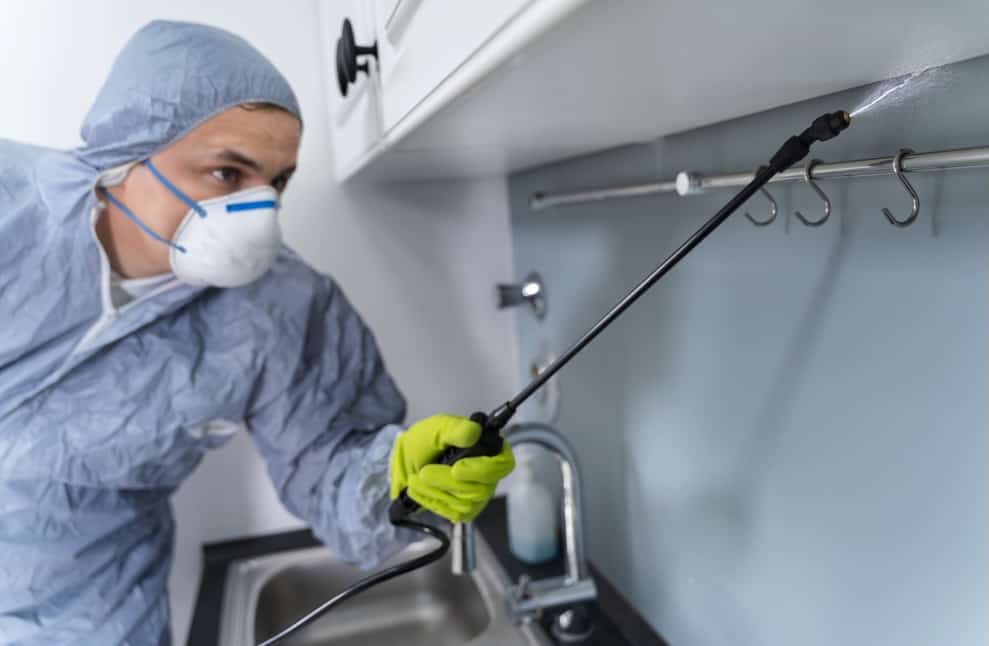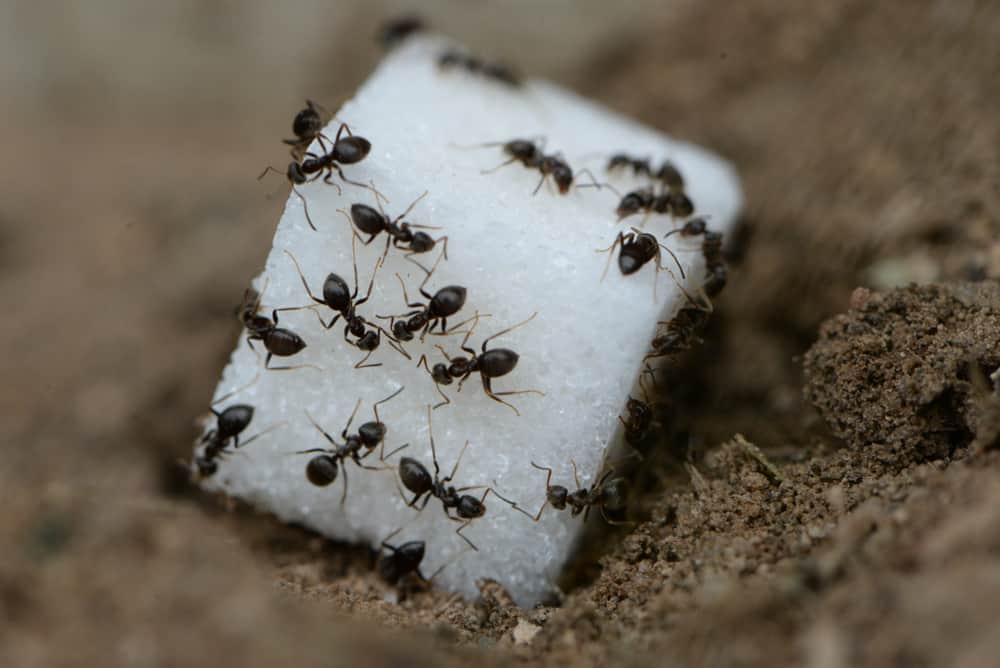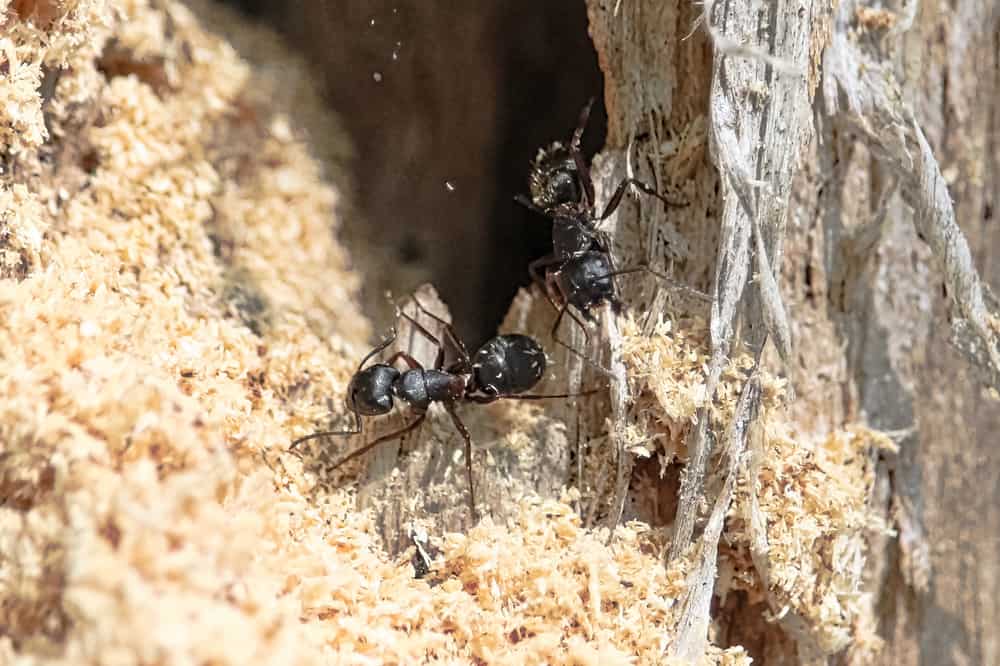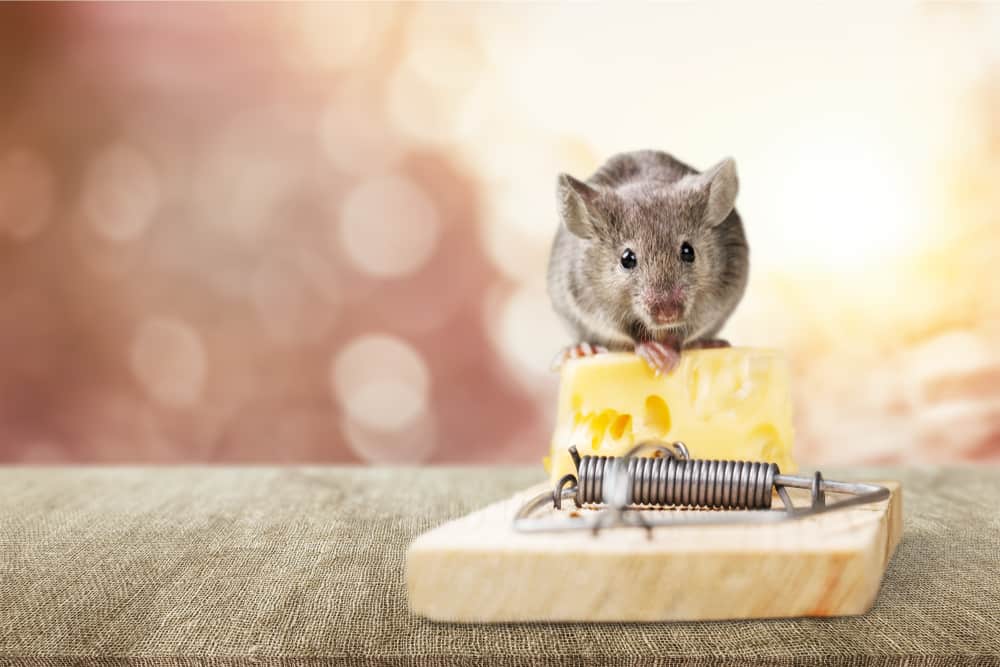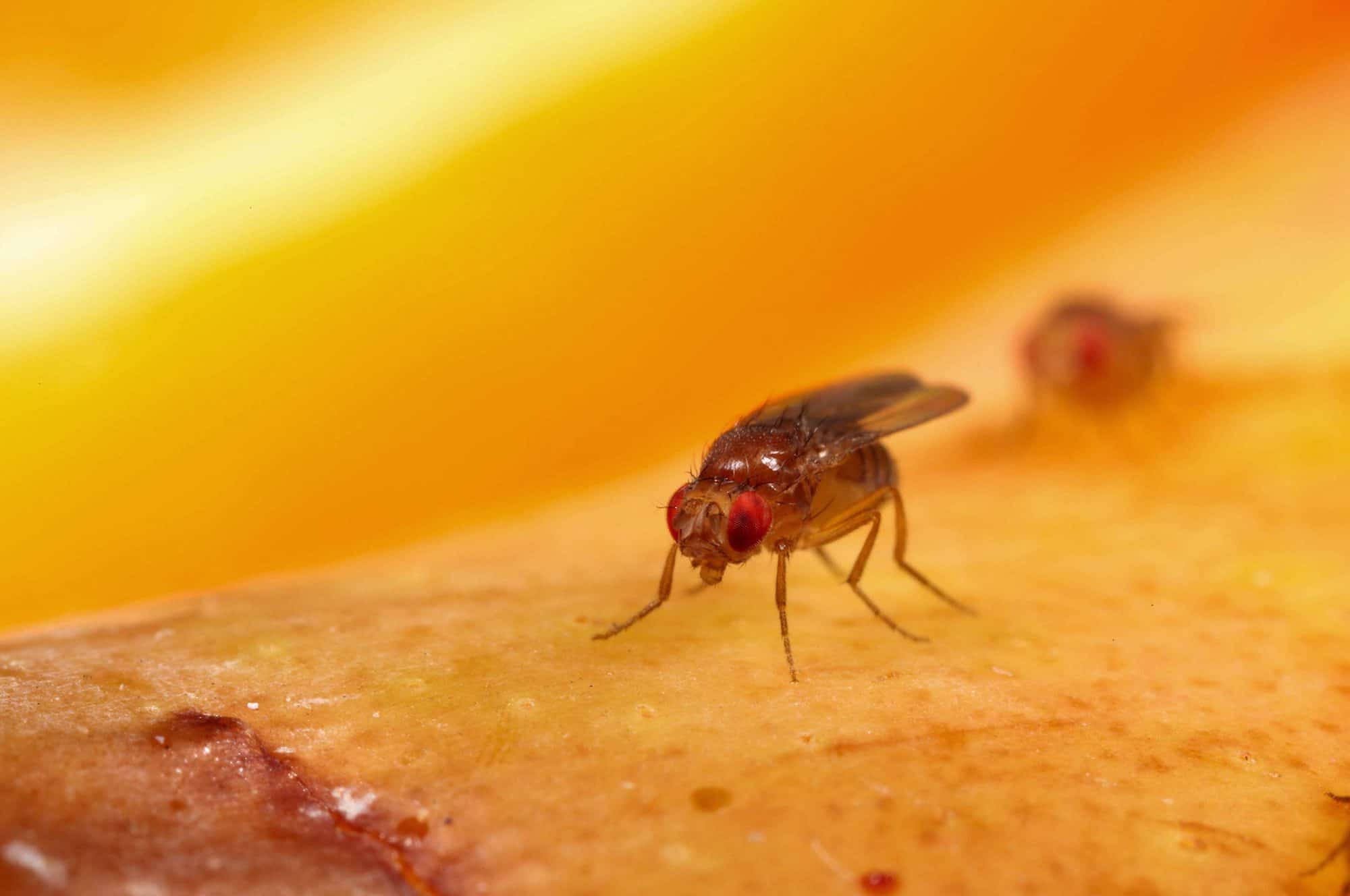Water bugs can be startling nuisances that appear without warning in places like your:
- Garden
- Bathroom
- Kitchen
- Living room
Hence their name, water bugs are drawn to moist environments with little light.
During months when outside temperatures become too hot or too cold for their liking, water bugs will seek more comfortable environments in our temperature-controlled homes.
When not inside your home, these pests can be found both in water and on land.
Water bugs don’t usually represent an immediate threat to your home or family, but they can cause problems if they’re ignored and let alone to multiply.
Quickly identifying and getting rid of any water bugs in your home is the key to preventing the build-up of an infestation, allowing you to avoid major disruptions to your livelihood.
Page Contents:
What do Water Bugs Look Like?
Water bugs are a fairly common household insect, often mistaken for its more famous counterpart…
The cockroach.
These two creatures are similar in appearance and preferred habitat, sizing out at about 1 to 2 inches in length.
While these two insects share a similar body shape, water bugs are usually darker in color. Cockroaches are typically a lighter reddish brown compared to a water bugs’ darker brown shade.
These creatures have 6 legs but are chunkier and smoother in appearance than roaches, and the first set of legs faces the front of the insect’s body while the other 4 face behind.
This is because water bugs hunt one another or smaller insects as prey as opposed to cockroaches which strictly scavenge for food in kitchen cabinets.
Finally, water bugs lack antennae on the top of their heads, and cockroaches have large antennae that stretch forward.
How to Kill Water Bugs Instantly
Below are 3 proven methods to removing water bugs from your home.
1. Household Remedies
For a natural insecticide that avoids using chemicals in your home, you can build a solution that is toxic to water bugs and spray this directly on the insect.
You can also spray the solution in areas you have seen these bugs dwell to disrupt their nest.
Elements that you can use to create a toxic spray include white vinegar or peppermint essential oil. Both of these are safe to use around children and pets while extremely harmful to water bugs.
To make a white vinegar solution, combine one part vinegar and one part water.
To make a solution with peppermint essential oil, mix 50ml of oil with 1 cup of water and shake to combine.
Using a spray bottle with a wide spray will maximize coverage for the amount of solution that you make.
2. Purchase Insecticides
Any insecticide that works with other common household insects should have a similar effect on water bugs.
You can buy insecticide sprays that have been cleared for use in the home, or use other home solutions like liquid soap or food-grade diatomaceous earth.
Liquid soap is a good option if you find water bugs around your property where there is standing water, such as pools or fountains.
Adding liquid soap, even in a small amount, to the water will prevent the water bugs from being able to surface and breathe.
Food-grade diatomaceous earth is a home-safe powder that repels and kills water bugs and other types of insects.
This is a good option if you are finding water bugs around your garden or other outdoor areas. Sprinkling DE on dry soil will kill or repel any water bugs that encounter it.
3. Baits and Traps
If you’re having trouble swiftly removing water bugs, using bait may be something to consider. These bugs will consume the bait and die with little effort from you.
Common products like traditional roach baits will generally work to kill these insects within a few days.
You can also use boric acid powder as bait to kill water bugs inside the home. However, it should be noted that boric acid is toxic to humans and animals (so use it with extreme caution).
Do Water Bugs Bite?
Yes, water bugs bite with pincers on the front of their heads. They usually use them to catch and kill prey by injecting a toxin.
While the toxin is not deadly or harmful to humans, it can be painful.
When bitten by a water bug, most people only experience the pain associated with the bite and the toxin. However, some people experience mild to severe allergic reactions.
The good news is that water bugs usually only bite if you find yourself in the water in close proximity to them.
How Do Water Bugs Get Inside the Home?
Water bugs seek shelter and food sources, and unfortunately, they are sometimes able to find those things in our homes.
Water bugs will enter a home through small cracks or gaps in the structure, whether that’s a window or a wall. So to prevent water bugs from entering, locate and seal off any cracks or gaps you can find, no matter how small they appear.
In addition, you should eliminate any factors that may be attracting water bugs, such as a moist environment or a food source.
This may be a leak or drip of water in the bathroom or kitchen, or another group of insects that has somehow made itself at home in your basement or attic.
Make sure your home is clean, dry, and void of any potential water bug food sources to guarantee that they don’t set foot on your property again.
